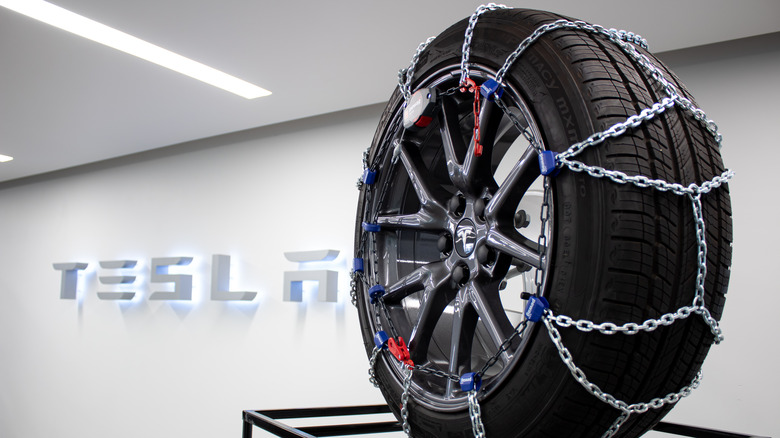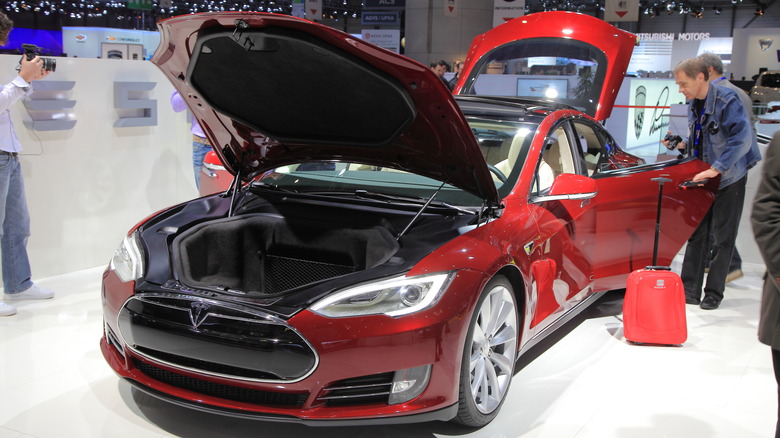Here's The Reason Why Tesla Tires Are So Much More Expensive
When it comes to going electric, motorists are serious about counting costs. Per SlashGear's recent survey on the subject, cost concerns came in just behind range limitations as the second most-cited reason for buyer skepticism over EVs. Over 20% of survey respondents cited costs as their main reason not to buy electric.
It's a serious consideration. As we've reported before, EV prices are only growing when marketplace logic says that increased demand and more accessible tech should be driving them down. Going beyond simple sticker shock, prospective EV buyers have concerns about long-term operating costs, given increased markup on everything from battery prices to simple part replacements.
In the latter case, costs could come from an unexpected source. Common sense suggests that tires, already painfully overpriced, should be more or less interchangeable across models: the same weight is moving over the same surfaces in the same general layout. As with almost everything electric, however, it's not quite so simple, and there's a good reason why Tesla tires may cost you more than competing companies.
Weighty considerations influence tire cost
The short answer is that batteries, and therefore Teslas, are heavy. Prices differ across models, but broadly speaking Tesla tires cost about as much as all-terrain truck tires (via Discount Tire and Axlewise), for almost exactly the same reason: they're specialist tools for moving serious weight at highway speed for years on end.
Per Tesla's own recommendations, drivers should be replacing their tires every six years or so and rotating them every 6,250 miles. According to Axlewise, that's anywhere between $900 for a full tire replacement on a Tesla Model 3 to $1,500 or more on a Model X or Roadster. That's some serious coin for something that may be necessary several times in the lifetime of the car. Electric Vehicle FAQs also rightly notes that labor costs may be higher on Teslas, at least for the next few years. EVs are still comparatively new to mechanics, which could add $150 or more to the final bill.
That's a lot of money, but Teslas are luxury cars, after all. Service always costs. As time passes and cheaper, more easily serviceable EVs take up more and more of the market, more accessible options are sure to become available.

